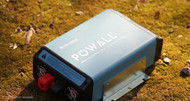DIRECT CONNECTION OR USE AN INVERTER - WHAT'S RECOMMENDED?
26th Feb 2024
For off-grid solar energy setups, deciding between using a direct connection or an inverter largely depends on the appliances and devices that you wish to power. Each of these setups have their own unique benefits and considerations. It's important to assess your needs before choosing one.

In a direct connection setup, the solar panels are directly connected to the appliances. The energy produced is used in real-time and cannot be stored for future use. For applications such as gate openers, water pumps, etc., a direct connection might be ideal. This setup eliminates the need for inverters and batteries.
However, since power production is dependent on sunlight, these appliances will only function during sunlight hours, unless you have a way to store excess power. Hence, a direct connection setup is best if your energy needs are basic and predominantly during the day.
On the other hand, if you require long lasting power, you’ll need to include an inverter and battery in your solar setup. Inverters convert the DC power produced by the solar panels into AC power, which is compatible with most appliances and electronics. This gives you the flexibility to power a wider variety of appliances, and at any time.
With an inverter-based solar setup, you can also include a battery bank. The battery can store excess solar energy produced during the day, making it available for use during the night or when the sun isn’t shining.
An inverter system is typically more costly than a direct connection system, owing to the cost of the inverter and batteries. However, this system offers more flexibility and a more constant energy supply, which is vital if you're using it as your main power source in an off-grid situation.

To sum it up, a direct connection is cost-effective for daytime use applications. But, if your energy requirements are diverse and require round-the-clock power, an inverter system with battery storage would be recommended for off-grid use. Ultimately, the best setup will depend on your specific energy needs and preferences.
Be Wise, Go Solar!
